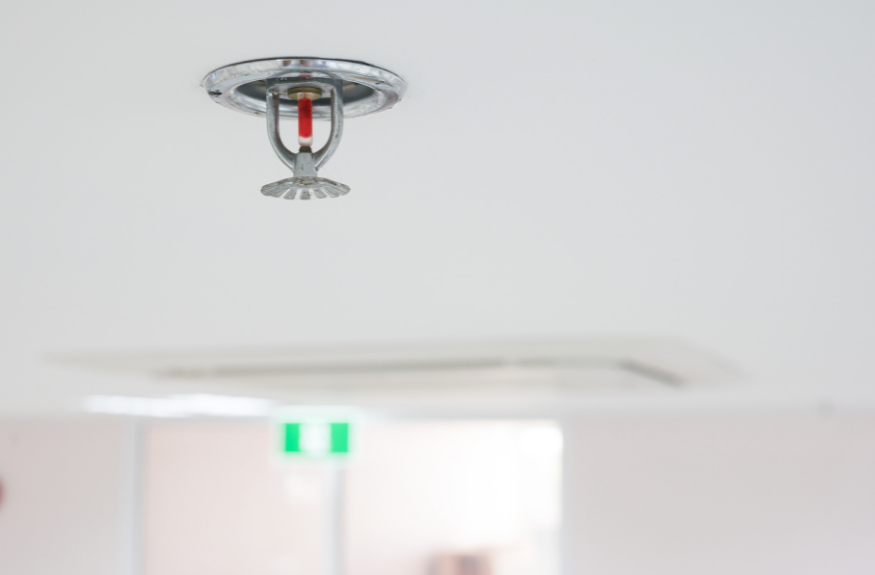Fire Suppression in Industrial Real Estate
No one wants to think about one of their properties encountering a fire, but the possibility of this building emergency remains. While these sorts of events are unlikely, it is still best to be prepared with the right fire suppression system so the fire can be eliminated before it does any large amount of damage.
Fire suppression systems in industrial real estate are often simply thought of as the sprinkler heads seen throughout the building. Jeff Morrison with International Fire Protection tells us that fire suppression systems have many components and are more complex than people think. They consist of fire/smoke detection devices, water delivery devices, pull stations, fire alarms, fire extinguishers, emergency exits and lighting, as well as much more. All these aspects of the system have to be maintained in order to keep your building and tenants safe as well as to stay within National Fire Protection Association (NFPA) code.
When it comes to the more specific aspect of water delivery devices, most industrial properties are equipped with a combination of wet and dry systems. These systems disperse water and air respectively once they are activated. Industrial properties also tend to be equipped with specialty systems such as deluge systems, pre-action systems, and fixed-spray systems.
Deluge systems are a type of wet system that are designed to deliver copious amounts of water to a target area. This type of system is often placed in an area that has a high fire load which is an area where a fire would be more severe. By delivering excess amounts of water, the system can drown out any potential fire.
Pre-action systems are a type of wet and dry hybrid fire suppression system. They contain compressed air until a fire detection system is activated, upon which the pipes will fill with water. However, unless the sprinkler heads are popped due to heat, no water will be discharged. This system serves to avoid the accidental, and costly discharge of water if a fire is not truly present.
Fixed-spray systems are intended to only deliver water to a fixed and predetermined area. By only delivering water to a certain area, these systems can be implemented in areas with high fire load while avoiding areas that are not likely to catch fire.
When designing a fire suppression system for an industrial property, there are many aspects to consider. One obviously needs to consider what specific type of water delivery system and other items to implement, but these decisions need to be based off factors that are specific to the space. Some common considerations include the type of occupancy that is taking place at the property, any special hazards such as server or electrical rooms, and how long the fire suppression system will last. These are just a few factors so it is important to use a licensed contractor when installing a system so that facility needs can be met.
While it is not enjoyable to think about the worst-case scenarios, it is necessary. This basic knowledge of a few fire suppression systems used in industrial real estate will hopefully prove useful in a preventative sense. To learn more about fire suppression in real estate, plenty of information is available on both the NFPA website as well as the website for International Fire Protection.
To stay up to date on news and resources such as this and other topics of importance to the real estate industry, subscribe to the free CRE Insight Journal Newsletter using this link.









